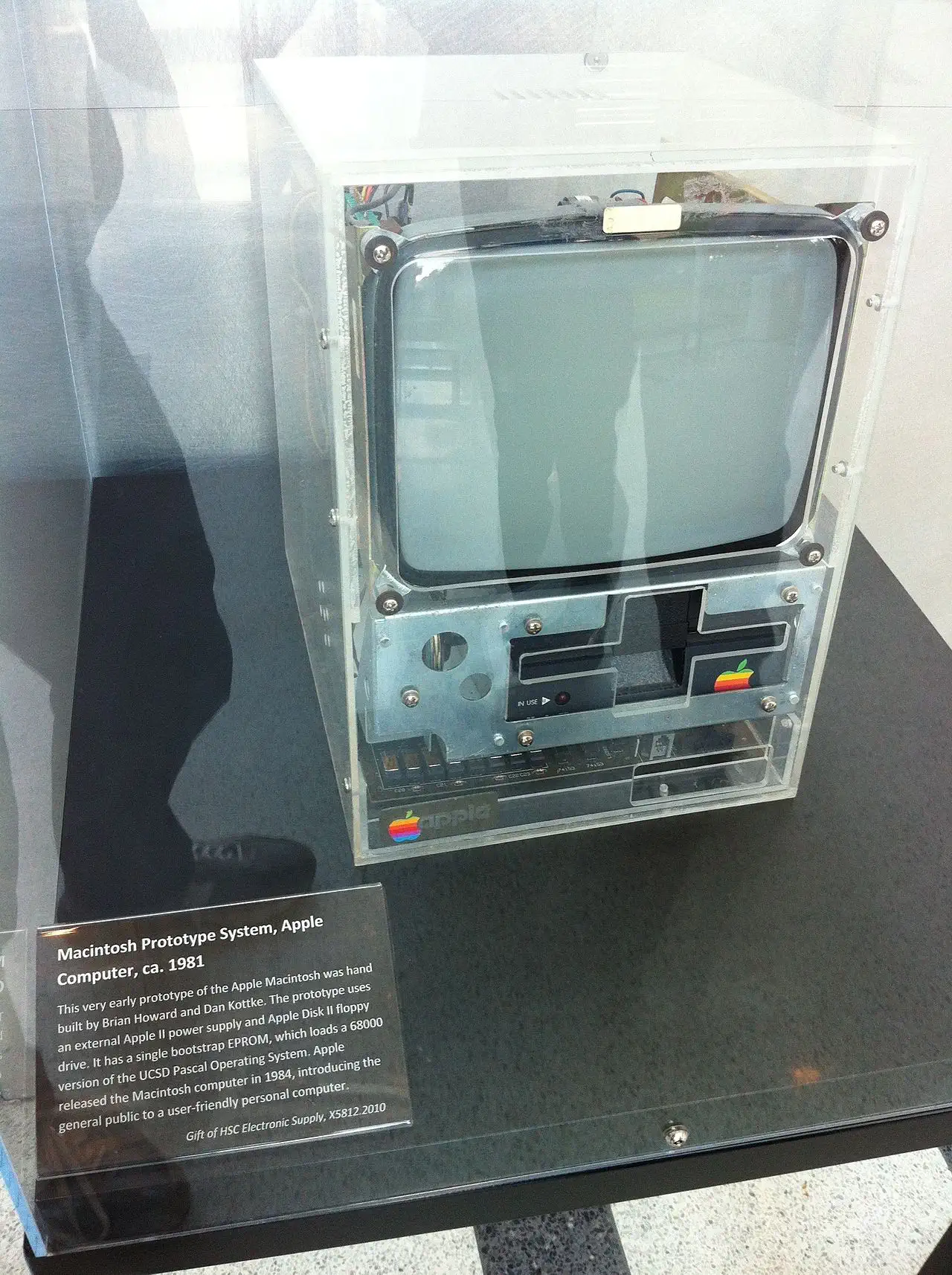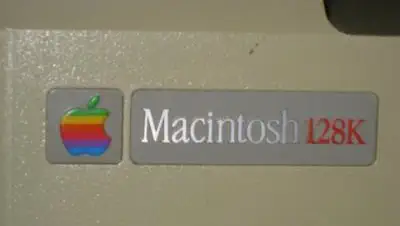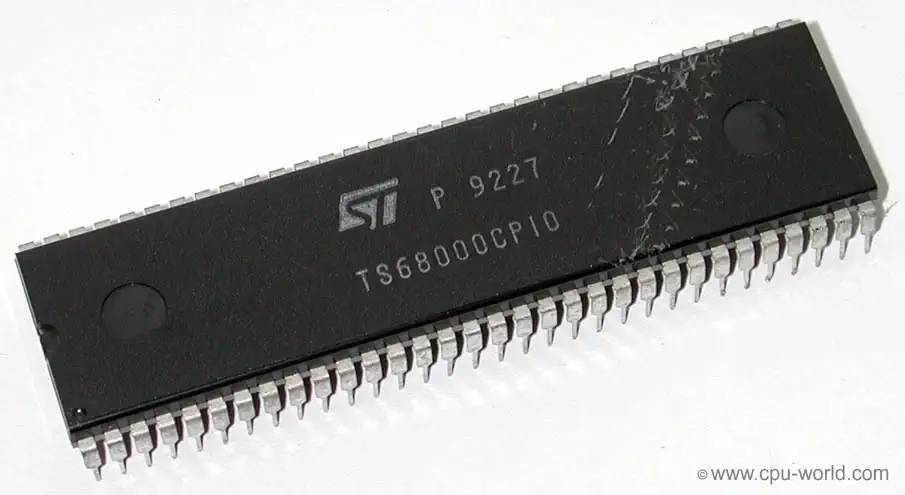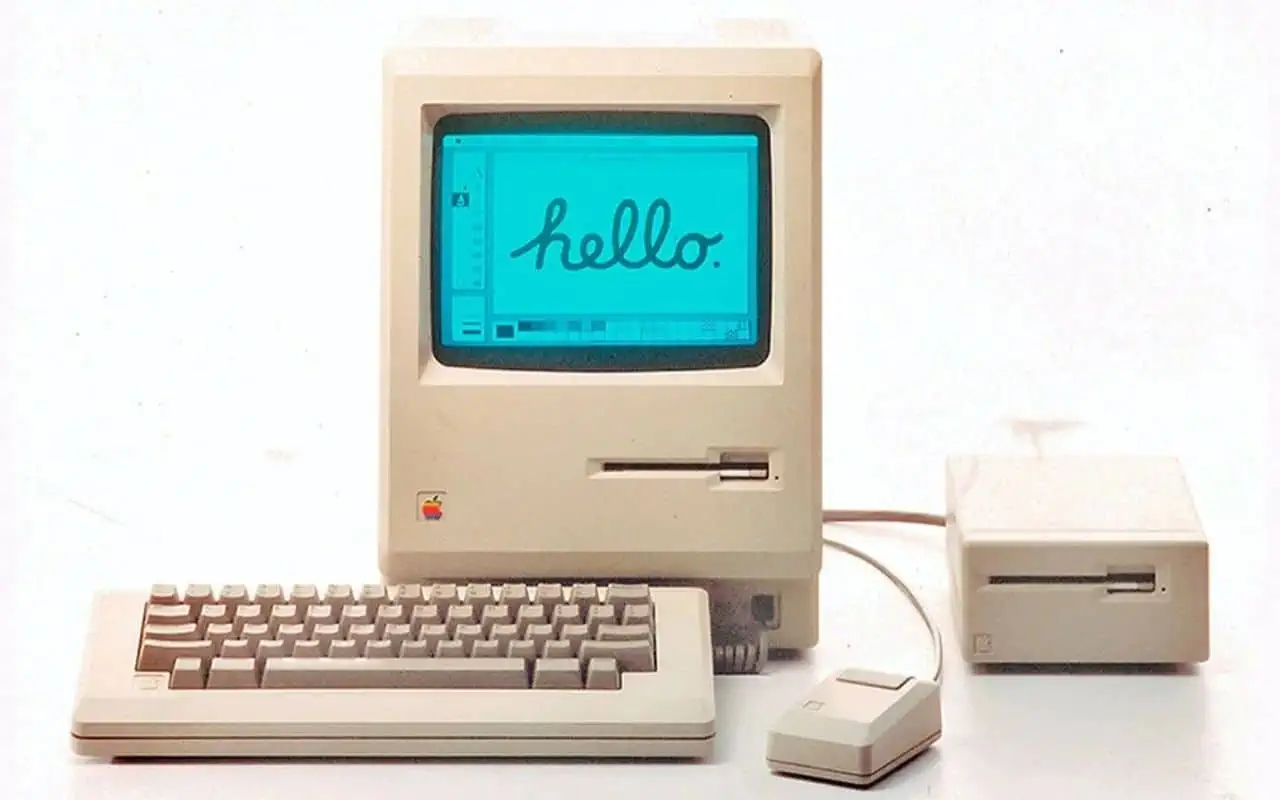Apple Macintosh
The Apple Macintosh was first introduced in a 1983 television ad that cost $1.5 million. The commercial was directed by Ridley Scott, and depicted the IBM world being destroyed by a new machine called the "Macintosh"
The machine did not sell well at first though, more than two months after the introduction, only 50,000 units were sold. Apple's refusal to license the OS or the hardware to anyone else, the 128KByte of memory and a difficult to use floppy drive made that the machine was not an instant hit. The Macintosh did have the same GUI as it's pre- decessor the "Lisa", but it lacked multitasking and the 1MByte of RAM.
Steve Jobs compensated for this by making sure that software was being produced for the new machine. With the introduction of the LaswerWrite printer and Aldus PageMaker home desktop publishing was suddenly possible and this gave teh Macintosh a huge sales boost.
The Macintosh became teh first successful mass-produced all in one desktop computer with a Graphical User Interface, built in screen and floppy drive, and a mouse. The computer was not cheap compared to competitors like the Commodore 64, which was much more affordable.
The Macintosh was originally named Macintosh 128K, but later rebranded to just Macintosh. It had the following specifications:
- 128KByte of RAM, expandable to 512KByte by soldering RAM chips on the motherboard
- 64KByte ROM with the ocmplete QuickDraw picture language and interpreter
- 9-inch 512x342 pixel monochrome built-in display
- Motorola 68000 @6MHz
- System Software 1.0 OS
- Two non-standard RS-422 DE-9 Serial ports (printer & modem)
- 19-pin D-sub external floppy drive connector
- 3.5" 400KByte single sided floppy disk drive
- Keyboard and mouse


Motorola 68000 CPU Family
The Motorola 68000 is a 16/32-bit microprocessor that was first released in 1979. It was widely used in computers and other electronic devices during the 1980s and early 1990s. The 68000 was known for its advanced architecture, which included a 32-bit internal bus and a 24-bit address bus, allowing it to access up to 16 megabytes of memory. This made it more powerful than many other processors of its time, such as the Intel 8086 and Zilog Z80. It was also designed to be highly modular and expandable, with a large number of on-chip and off-chip peripherals.
Some of the most famous and successful computers that used the 68000 was the Commodore Amiga and the Atari ST, both of which were popular in the home and personal computer markets. Additionally, it was also used in workstations, such as the Sun 3 and Apollo DN3000, and in a wide variety of embedded systems and industrial control systems. The 68000 was also used in the Macintosh, the first model of the Macintosh was powered by a Motorola 68000 CPU. The processor was eventually succeeded by the 68020 and 68030, which offered improved performance and additional features.
The 68000 has a 32-bit instruction set, with 32-bit registers and a 16-bit internal data bus. The address bus is 24-bit and does not use memory segmentation, making it easier to address memory. There are three ALU's (Arithmetic Logic Unit), two for calculating addresses, and one for data, and the chip has a 16-bit external address bus.
The 68000 architecture was expanded with 32-bit ALUs, and caches. Here is a list with some 680x0 versions and their major improvements:
- 68010 - Virtual memory support
- 68020 - 32-bit ALU & Instruction Cache
- 68030 - On-Chip MMU, 2x 256 byte cache
- 68040 - 2x 4K Cache, 6 stage pipeline, FPU
- 68LC040 - No Floating Point Unit (FPU)
- 68060 - 2x 8K Cache, 10 stage pipelinet

Source: WikiPedia - Motorola 6800
Source: WikiPedia - 68000 Series


